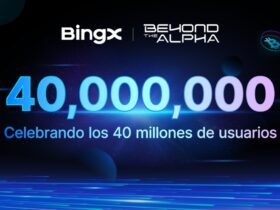So far this month, the profit of validators is only USD 86 million.
The profitability of validating on Ethereum reached $2.24 billion at cycle peaks.
The profitability of staking Ethereum is not at historic lows, but close. Data on-chain shows that in June there was a turning point in the profits of validators, who had been experiencing slow but sustained growth in their profitability since almost October 2022.
In June 2024 alone, validators made a profit of $289 million. Although the information offered by the metric takes into account only what has happened in the month of October, the USD 108 million obtained by validators to date represents a significant decrease in their profits. In fact, the profitability of stakers It had not reached such low levels since February 2023more than a year and a half ago, when these rewards remained below $100 million for a time.
While not everyone who stakes the Ethereum network actively validates blocks on the network and receives rewards for doing so, the profitability of these validators is a useful metric. This shows the Ethereum stakers that have the best profitability. Therefore, those who do not validate experience similar profits, but without receiving direct rewards in the form of commissions.
The metric that measures this profitability is called “Ethereum Block Validator Income”. To calculate validator earnings, this metric takes into account “inflation rewards (block subsidy) and transaction fees.”
Validators on Ethereum receive rewards in ether, the native currency of this network, for producing blocks (hence the so-called “block subsidy”) and processing valid transactions.
Of those rewards earned by Ethereum stakers, the majority comes from processing valid blocks on the network (gray line on the graph). A fraction comes from transaction or gas fees, which is also a way the network rewards validators. These commission earnings have remained relatively stable throughout the year: between 33 and 40 million dollarsas reflected by the red line on the graph.
Overall, the reward for staking and collaborating with the Ethereum network is not at its best in history. The graph above demonstrates that this reward has been much higher in the past, at least from 2021 to mid-2022, when it was highly profitable to be an Ethereum validator.
During these dates, validators as a whole received up to $2.49 billion, a figure that represents current earnings multiplied by 23. In other words, stakers have managed to win 23 times more than they won today.
As an interesting additional fact, the difference in income by type of rewards has never been greater on the Ethereum network since it transitioned to proof-of-stake (PoS).
These stakers earn more from randomly processing blocks than from transactions on the network. This may be due to the low activity, relative to other times, that the Ethereum chain demonstrates.
What is the reason for the drop in profitability of Ethereum staking?
The decline in profitability has several reasons. One is that the price of ether (ETH) has marked a sharp decrease compared to the price of bitcoin (BTC), as reported by CriptoNoticias. Against the dollar, its price has only fallen since May, when it almost exceeded USD 4,000 per currency.
The drop and subsequent consolidation of its price around $2,500 has not allowed the revaluation of the ethers that validators obtain as rewards for much of the year. In addition to supply and demand around the price, a property of ether itself as a currency could be affecting these price declines: the inflationary current of the cryptocurrency.

Other reasons less related to the price have caused the decrease in profitability for Ethereum validators. It has to do with the increase in the number of validators, which has implied a greater amount of ethers staked. An increase in these validators inflicts a lower reward share for each one separately.

The implementation of second layer rollups has caused a decrease in the amount of traffic on the network. This inevitably also results in less haul of rewards for validators on Ethereum.






Leave a Reply